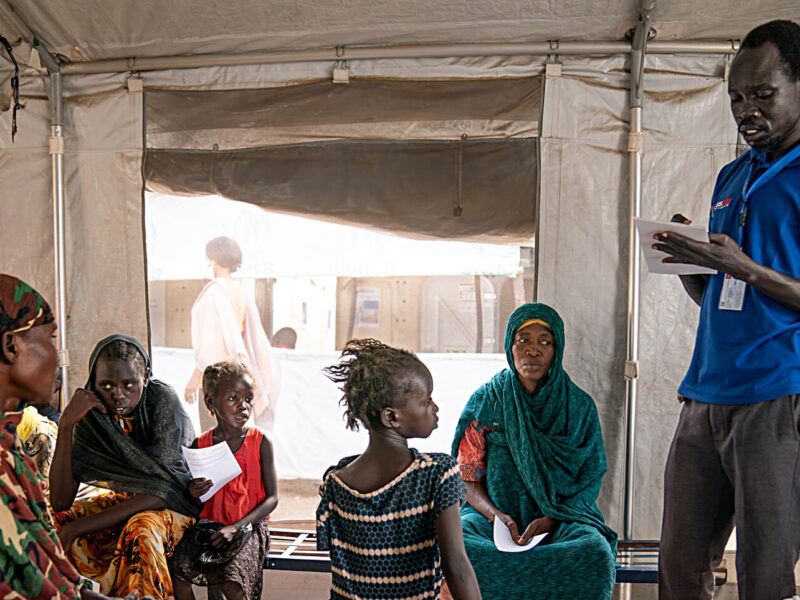Canoeing to Clinics
Supported by the European Union, a small but mighty International Medical Corps health team in Cameroon holds weekly mobile clinics across the Far North region—but getting there requires a full day of travel by car, boat and motorbike.









